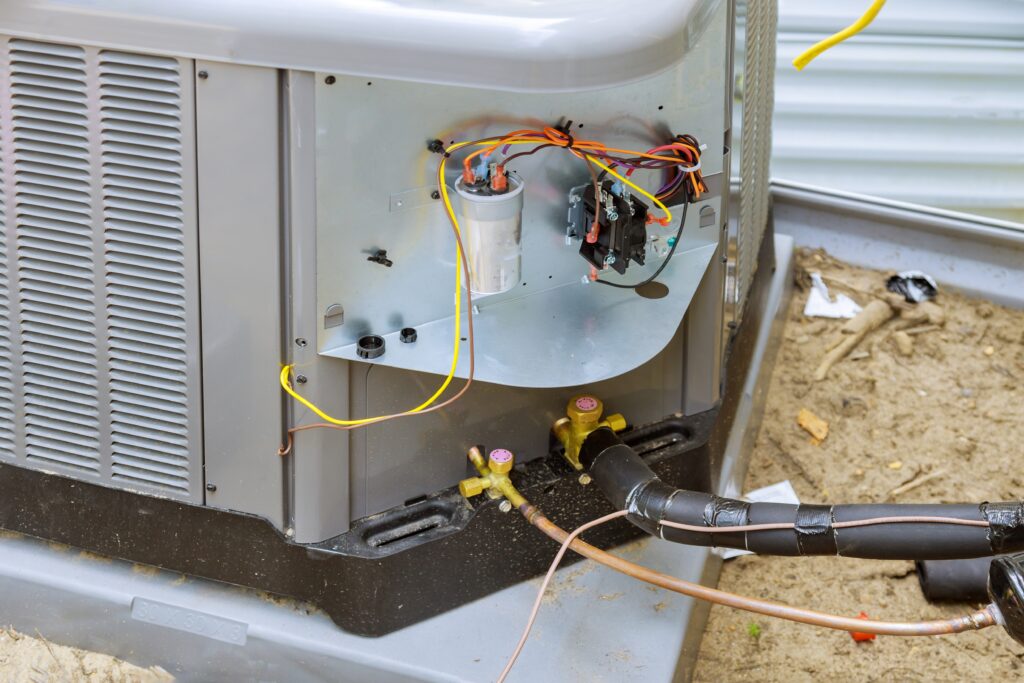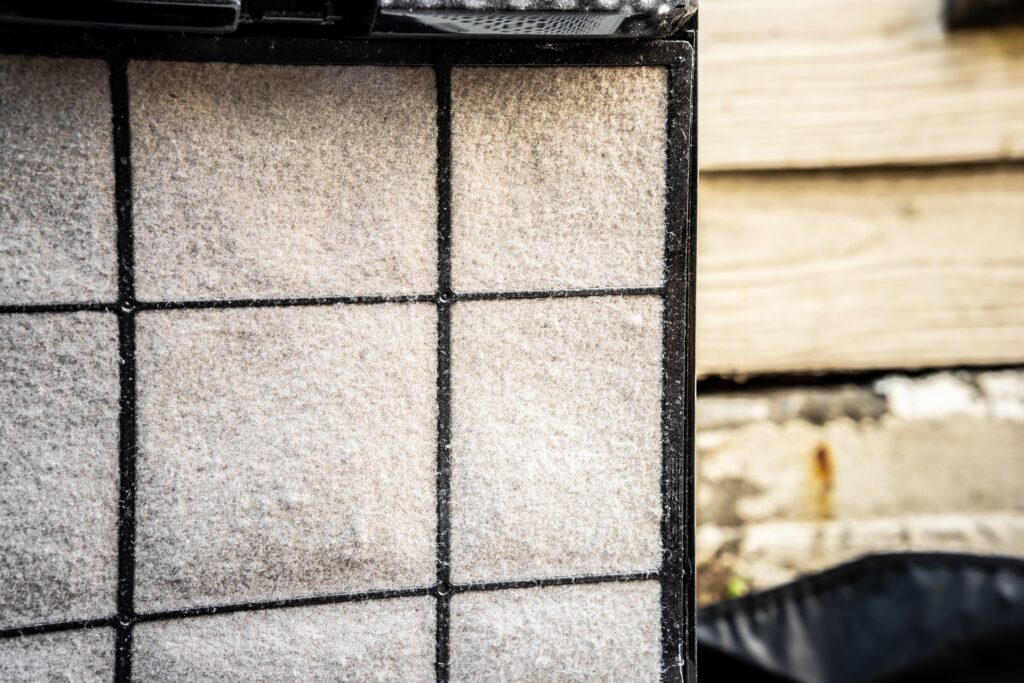How to Prep Your HVAC System Before Going on Vacation
As a Gulf Shores homeowner, planning a vacation involves a long checklist, from packing bags to arranging for pet care. However, one of the most critical pre-trip tasks is often overlooked: preparing your HVAC system. What you do with your heating and cooling system before you leave can have a significant impact on your energy bills, the health of your equipment, and the overall condition of your home. Leaving your system unprepared can lead to wasted energy, or worse, you could return from a relaxing trip to a stuffy, humid house or even a costly system breakdown.
Properly prepping your HVAC system is about finding the right balance. You want to save money on energy costs while you are away, but you also need to protect your home from the intense humidity that defines our coastal Alabama climate. A few simple steps can ensure your system runs efficiently, prevents moisture-related issues like mold, and welcomes you back to a comfortable, fresh-smelling home. At Wynn Creek AC, we want to help our neighbors travel with peace of mind. This guide will walk you through the essential steps to prepare your HVAC system for your next vacation.
Should You Turn Your HVAC Off or Adjust It?
It might seem like common sense to turn your air conditioner off completely before you leave for vacation. Why pay to cool an empty house? While this logic works in drier, milder climates, it is a risky strategy in Gulf Shores. Turning your HVAC system off for an extended period, especially during the spring, summer, or early fall, can have serious negative consequences for your home. Your air conditioner does more than just cool the air; it plays a vital role in controlling indoor humidity. When your system is off, the indoor temperature and humidity will climb, quickly matching the sweltering conditions outside.
This high humidity creates the perfect breeding ground for mold and mildew. Moisture can accumulate on surfaces, inside walls, and in fabrics, leading to musty odors and potential damage to your furniture, drywall, and personal belongings. Furthermore, when you return and turn the system back on, it will have to work incredibly hard for many hours, or even days, to overcome the built-up heat and humidity, putting immense strain on the equipment and erasing any potential energy savings.
The recommended approach is not to turn your system off, but to adjust the temperature setting. For short trips of just a few days, setting the thermostat 5 to 7 degrees higher than your usual comfortable temperature is sufficient. For longer trips of a week or more, you can set it to a higher temperature, typically between 80 and 85 degrees Fahrenheit. This setting is high enough to save a significant amount of energy but low enough that the air conditioner will still cycle on periodically to remove excess humidity, protecting your home from moisture damage and ensuring it will not take long to cool back down upon your return.
Set Your Thermostat for Maximum Efficiency
Your thermostat is the command center for your HVAC system, and using it correctly is key to managing your home’s climate while you are away. Modern programmable and smart thermostats are invaluable tools for vacation prep. A programmable thermostat allows you to set a specific “hold” or “vacation” temperature, ensuring the setting is not accidentally changed and the system operates consistently based on your pre-trip instructions.
A smart thermostat offers even greater control and peace of mind. These devices connect to your home’s Wi-Fi, allowing you to monitor and adjust your home’s temperature from anywhere in the world using your smartphone. If an unexpected heatwave hits Gulf Shores while you are gone, you can lower the temperature slightly to compensate. Many smart thermostats also track humidity levels and can send you an alert if the indoor humidity exceeds a certain threshold, letting you know that your system is working as it should.
When setting your thermostat for vacation, the recommended temperature range for cooling is generally 80-85°F. This range strikes an effective balance between energy conservation and humidity control. It prevents the system from running constantly while ensuring it activates often enough to pull moisture from the air, which is critical in our coastal environment. If you are traveling during the winter, you can set your thermostat lower, but it is wise to keep it at 55-60°F to prevent the unlikely but possible risk of pipes freezing during a sudden cold snap.
Check and Replace Air Filters
The air filter in your HVAC system is a small component with a huge impact on performance and efficiency. Its job is to trap dust, pollen, pet dander, and other airborne particles, preventing them from circulating in your air and from accumulating on the sensitive internal components of your system. Before you leave for vacation, one of the easiest and most important tasks you can perform is to check your air filter and replace it if it is dirty.
A clogged filter severely restricts airflow. This forces your system’s blower motor to work much harder to pull air through, which increases energy consumption and puts unnecessary strain on the motor. If the airflow is restricted enough, it can cause the indoor evaporator coil to get too cold and freeze over, which can lead to a system shutdown and potential water damage when the ice melts. By starting with a clean filter before you leave, you ensure that if your system does need to run while you are away, it can do so as efficiently as possible without the risk of choking on a dirty filter.
Checking your filter is simple. Locate the filter slot, usually on the indoor air handler unit or in a return air grille in a wall or ceiling. Slide the old filter out and hold it up to a light. If you cannot easily see light passing through it, it is time for a replacement. Make sure you replace it with a new filter of the correct size, sliding it in with the airflow arrows pointing in the right direction, typically toward the furnace or air handler.
Schedule HVAC Maintenance Before You Leave
For the ultimate peace of mind, scheduling a professional HVAC maintenance visit before a long vacation is a wise investment. A pre-trip tune-up ensures your system is in optimal condition to operate reliably and efficiently while your home is unoccupied. The last thing any homeowner wants is to receive a call from a neighbor that their AC unit has broken down in the middle of a summer heatwave, leaving the home vulnerable to heat and humidity.
During a professional maintenance visit, a certified technician from Wynn Creek AC will perform a comprehensive inspection and tune-up. This includes thoroughly cleaning the indoor and outdoor coils to improve heat transfer and efficiency, clearing the condensate drain line to prevent clogs that can cause water damage, and checking refrigerant levels to ensure there are no leaks. The technician will also test electrical components like capacitors and contactors, which can weaken over time and are common points of failure. They will inspect and lubricate moving parts like fan motors to reduce friction and wear.
By having your system professionally serviced, you can catch and address small, inexpensive problems before they have a chance to turn into major, costly breakdowns while you are away. This preventative care not only protects your investment in your HVAC equipment but also ensures it will run as efficiently as possible, saving you money while providing reliable protection for your home.
Inspect Ductwork and Vents
Proper airflow is essential for your HVAC system to function correctly. Before you leave, take a few moments to walk through your home and ensure that nothing is blocking the supply and return air vents. Make sure all interior doors are left open to promote balanced airflow throughout the house. A common mistake homeowners make is to close the vents in unused rooms, believing it saves energy. As discussed in other articles, this actually disrupts the system’s balance, increases pressure in the ductwork, and can cause damage.
While you are checking the vents, do a quick visual inspection for any obvious signs of problems with your ductwork. Look for disconnected sections, tears, or crushed areas in any visible ducts in your attic or crawl space. Leaky ductwork can waste a significant amount of energy by allowing your conditioned air to escape into unconditioned spaces. Ensuring your vents are clear and your ductwork is intact helps your system maintain your desired vacation temperature with less effort and lower cost.
Consider Air Quality While You’re Away
An unoccupied home can quickly develop stale, musty odors if the air is left to stagnate. This is especially true in a humid climate where moisture can accumulate. Your HVAC system’s periodic cycling will help circulate the air, but you can take additional steps to ensure you return to a fresh-smelling home.
If your HVAC system is equipped with an air purifier or if you have a standalone unit, leaving it on a low setting can help filter out particles and prevent odors from developing. More importantly, if you have a whole-home dehumidifier integrated with your HVAC system, make sure it is set correctly before you leave. A dehumidifier will work in tandem with your air conditioner to maintain a relative humidity level below the 50-60% threshold where mold and mildew can thrive. This provides an extra layer of protection against moisture, ensuring your home’s air remains clean and healthy while you are away.
Protect Against Power Surges and Storms
The weather in Gulf Shores can be unpredictable, especially during the summer and hurricane season. Electrical storms are common, and power surges can pose a serious threat to your HVAC system’s sensitive electronic components. A power surge can instantly destroy the control boards and motors in your unit, leading to an expensive repair. A whole-home surge protector, installed at your main electrical panel, is the best defense against this risk. It protects not only your HVAC system but all the electronics in your home from damaging voltage spikes.
If you do not have a whole-home surge protector, you might consider turning off the circuit breakers for non-essential systems before you leave. However, you should be very careful about which breakers you turn off. You will want to leave the power on for your HVAC system so it can continue to control the humidity. You should also leave power for your refrigerator and any security systems. Consulting with a professional can help you determine the best strategy for your home’s specific setup.
Preparing for a vacation should be an exciting time, not a stressful one. By taking a few simple steps to prepare your HVAC system, you can leave with confidence, knowing your home is protected from the risks of high humidity and your energy use is minimized. Adjusting your thermostat to a safe, energy-saving temperature, installing a clean air filter, and ensuring your vents are clear are easy tasks that make a big difference. For the highest level of assurance, a professional maintenance check before you depart is the best way to prevent unexpected breakdowns.
The team at Wynn Creek AC is dedicated to helping our neighbors in Gulf Shores and the surrounding communities travel with complete peace of mind. If you have questions about preparing your system or would like to schedule a pre-vacation maintenance visit, do not hesitate to contact us. We are here to ensure you always return to a safe, comfortable, and welcoming home.







